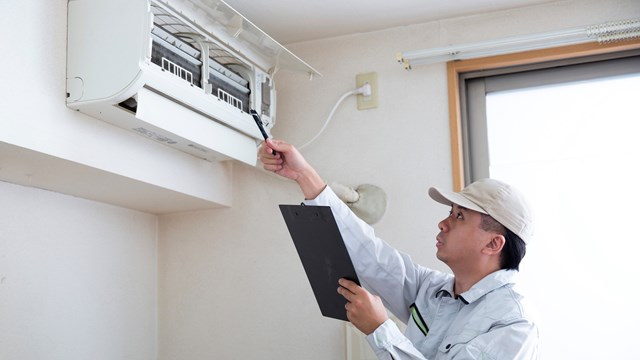The vast majority of co-op and condominium boards are well intentioned and work diligently with their management and accountants to draft and monitor their annual budgets—and recalibrate them as necessary. Despite their best efforts to keep costs under control, however, many communities find that expenses often exceed their projections. Even in the absence of an unforeseen crisis or major repair project, it often seems like money is just leaking out of the system. The question is, where does it go—and how can we plug up the leaks when we find them?
Financial Leakage Defined
Avi Zanjirian is a partner at the accounting firm of Czarnowski & Beer and works with clients in New Jersey and New York. According to him, financial leakage is more often a result of inattention than of outright negligence or fraud. To find these blind spots, “We look at it from an auditor’s perspective,” he says. “You might be paying electric, water usage, and repairs, and all are within budget. But at the same time, you may not be looking at all the line items regularly to make sure they’re working efficiently.” Zanjirian recommends taking a hard look at every line item in your budget on a year-to-year basis, and assessing whether you’re getting the most for your money (or even just getting what you’re paying for) from your community’s vendors and service providers. “Do you have the best vendors, contract terms, etc.?” Zanjirian says. “As contracts expire, you should be checking this.”
Another factor Zanjirian points out is the popularity of using autopay systems to send out payment for recurring bills. While the convenience of a ‘set it and forget it’ payment option is undeniable, it can often mean that less close attention is paid to cash outflow every month. This is why it’s important to periodically take a close look at your community’s accounts payable, as well as to conduct an end of year review to determine whether costs went up, and if they did, why? “It could be because no one negotiated a new contract or a misplaced charge,” says Zanjirian. “In terms of metered services like electric and water, are meter readings estimates or actual? Too much stuff is on autopilot.”
He goes on to list other areas that should be scrutinized: “Are we looking at real estate taxes and protesting them every year? Energy repairs, supply and maintenance, and service contracts should also be evaluated every two to three years. The same should be done with professional services like auditors, attorneys, engineers, and architects. There’s also the minutia, like cleaning supplies. But boards should remember, you generally get what you pay for—especially with professional services—so don’t try to save a few dollars on an attorney or an accountant and expect top shelf service.”
Eric Fudeman, a partner with Needham, Massachusetts-based accounting firm Bloom Cohen Hayes, agrees. “As accountants, we don’t judge what is unnecessary and what is necessary. A board sets a budget for a year, and upon regular review, if some expense seems really high to the industry norm, I might question it. But we don’t refer to it as ‘leakage,’ though. Our view is that the board simply didn’t budget properly. If there are leaky toilets or water running someplace, you might have excessive water bills. Or if you have high common area electric bills it might be because there is too much heat. To get the best price for services, boards should also rebid, rather than just renewing contracts. For example, perhaps your board isn’t rebidding snow removal and paying a higher price than they should be.”
“When we do work within apartments that owners should pay for and it’s not billed back correctly, we have substantial and costly leakage,” says Dan Wollman, CEO of Gumley Haft, a Manhattan based co-op and condo management firm. “There are also utilities such as water and sewer, electric and gas, as well as other issues with recording those billings; are you being charged correctly? In one case,” he says, “we had an excessive water bill in one building we manage. It wasn’t clear if it was a leak or there was a problem with the meter. We had the meter recalibrated, and then found a leak in the condensate tank. It turns out that was the source of the actual physical water leak that led to the financial leakage.”
Scott Wolf is the CEO of Brigs, a management firm located in Boston, and says he sees this problem less frequently—particularly in suburban-style condo associations and HOAs where owners are typically responsible for the vast majority of operating costs and common areas are minimal. He notes that in more urban multifamily buildings, the incidence of financial leakage does increase somewhat. “Typically, we do not see frivolous spending,” he says. “Generally, it’s the opposite; associations are not spending enough to maintain their properties. Sadly, the only thing we have seen is investing in personal agenda items at the expense of other needed repairs—like boards believing they need to plant flowers at the entrance of a property, when paint is peeling off the building exteriors—that kind of thing.”
Audits
The best way to determine if your property is suffering from financial leakage is to complete a thorough audit of your financial records. “We look at it from two perspectives,” says Zanjirian. “The first is at what the projected or expected amount of an item was—or what it should have been—and if it’s out of line with projections. If it is, we go to determine why. Let’s say a project should have cost ‘X’ dollars, but it cost 10 percent more—or alternatively, say there are more payments to a vendor than expected; we do further investigation. It has a forensic aspect; perhaps you were misbilled. Or was there maybe an extra visit to the property for some reason? We will verify, correct, and confirm, but I can’t tell you if you overpaid until our assessment is complete. In the end, the numbers never lie.”
When working with auditors, Wollman says that as a manager, he will provide the board raw information, vouching for bills, and examining any written for over a certain set amount. He will also compile a financial statement as a budget and comparative tool. “It must be accurate, thoughtful, and realistic,” he says.
The pros agree that the best long-term approach to controlling financial leakage is vigilance. Management and boards should be reviewing expenses on at least a monthly or quarterly basis and coordinating with their accounting professionals when any unexpected expenses occur. Zanjirian suggests that a ‘Round Robin’ approach may be best. Auditors should look at different items every year. Some years energy costs or metered services should be scrutinized. Other years it might be supplies or annualized repairs.
After an accounting audit, Wollman checks against his own projections. “If I did a good job, it’s close,” he says. “If something is out of whack, we turn to a specialist.” In addition to accountants, “there are also professionals who can renegotiate your water bills and other services with the city to get you a reduction. They are familiar with city programs you might not be familiar with.” Wollman points out that this can help—but it does cost money. “You have to pay for these services.”
Zanjirian also says that while it’s primarily the responsibility of the association or corporation treasurer to review expenses and compare them to budgeted projections, every board member should be reviewing these numbers themselves, even if they don’t have a professional background in finance or accounting. “With new board members,” he says, “they can call me and I will walk them through the monthly statements and how to view them. More than one pair of eyes is always better.”
Don’t DIY
Unless there are board members who have extensive professional experience in real estate, finance, and accounting, a board should not undertake a full audit of their expenses on their own, says Zanjirian. When it comes to association finances, it’s best to hire a specialist. “Accountants do [audits] and studies. There are also consultants who do expense studies specific to your spending. Appropriately qualified managing agents can also do them. Much stems from how good the management company is. The best run buildings have good, involved board members and great managers, but you should still seek professional advice.”
Wollman also warns against homespun audits, and points out that most bylaws require that an audit be done annually—and conducted by a certified accounting firm.
“Condominium boards do not usually have the skills necessary to perform the kind of audit that’s normally performed by an accountant,” says Richard Brooks, a partner with Marcus Errico Emmer & Brooks, located in Braintree, Massachusetts. “In addition, the Condominium Act in Massachusetts specifically calls for any required audits or reviews to be done by independent certified public accountants. Lastly, and it may be most obvious, the board conducting an audit on its own records would be in a position of conflict, as they are looking at the records that they themselves keep—so it would not be an independent review.”
In the final analysis, vigilance is the key to maintaining the financial health of your co-op or condominium community. That vigilance requires a team and a plan. That team includes accountants, auditors, managers, cost specialists, and board members. Reliable projections of expenses and regular monitoring of those projections against real expenditures are crucial to catching any financial leakage. In the long run, vigilance is more effective than wishful thinking. In business—and that’s what your community is—unexpected bumps in expenses are usually the result of poor monitoring, not one-time blips on the economic horizon.
A J Sidransky is a staff writer/reporter for New England Condominium, and a published novelist.







Comments
Leave a Comment